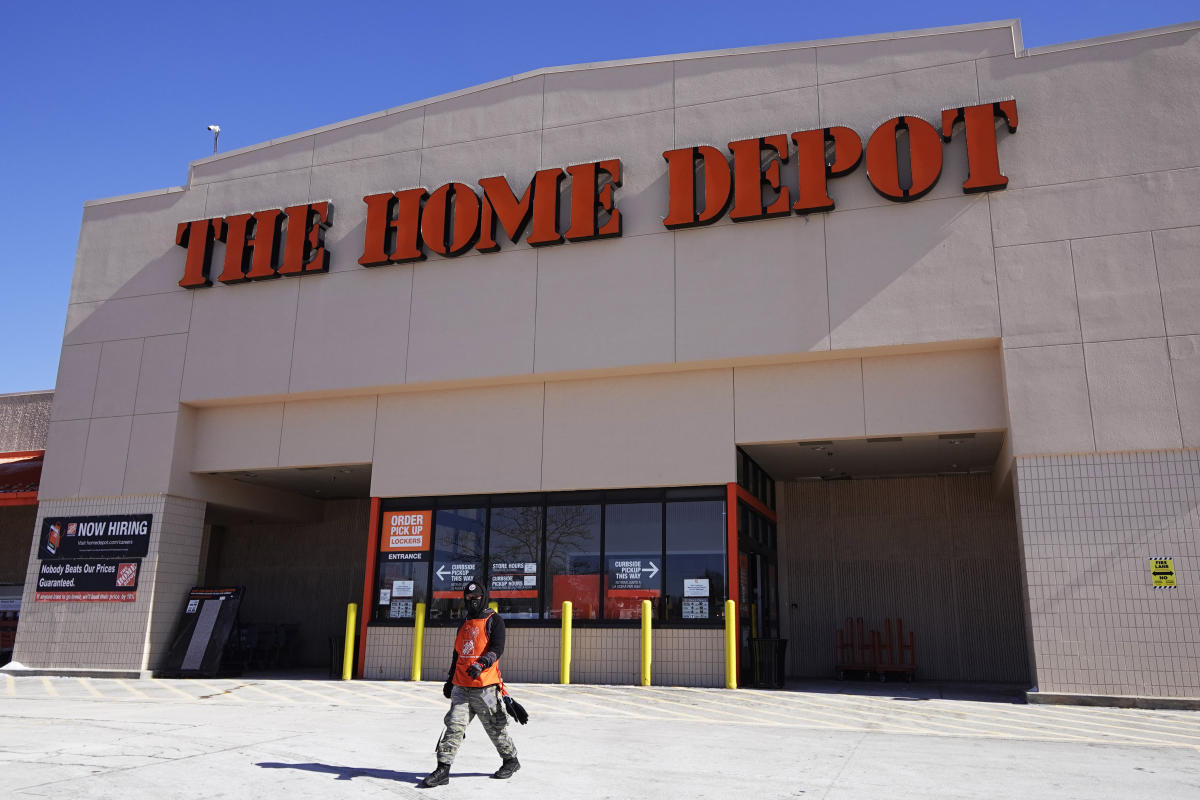Home Depot’s sales rose slightly in the second quarter as the nation’s largest home improvement retailer benefited from an $18 billion acquisition in the spring, but customers continued to hold back on spending due to higher overall costs and increased interest rates.
According to a survey by Zacks Investment Research, sales rose to $43.18 billion from $42.92 billion, beating Wall Street’s expectations of $42.57 billion.
Quarterly results improved in part thanks to the acquisition of contract distributor SRS Distribution, which contributed $1.3 billion to Home Depot’s quarterly revenue. SRS supplies materials to professionals such as roofers, landscapers and pool builders.
“Home Depot’s decision to deepen its expertise in specialty categories through the acquisition of SRS Distribution is welcome as it adds a new customer base,” said Neil Saunders, managing director of GlobalData. “We believe the integration of SRS will deliver revenue and profit benefits over time, as well as being a key differentiator against competitors like Lowe’s that are trying to make money in the professional space.”
The performance helped Home Depot overcome a sales slump. Home Depot’s first-quarter revenue fell 2.3% to $36.42 billion as the Atlanta-based company struggled with high mortgage rates, inflation and a delayed start to spring. It was the third straight quarter of declining sales for the retailer, which has seen sales soar during the pandemic as millions spent more on their homes.
Customer transactions fell 1.8% during the quarter, and customers also spent less: the average bill amount was $88.90, compared to $90.07 in the same three months last year.
In addition, sales at stores that have been open for at least a year – an important indicator of a retailer’s health – fell 3.3 percent in the quarter. In the US, the figure fell 3.6 percent.
The company now expects sales at stores open at least a year to decline 3 to 4 percent in 2024. The previous forecast was for a decline of about 1 percent. Home Depot expects earnings per share to decline between 2 and 4 percent for the full year. The company had previously forecast earnings per share growth of about 1 percent. Total sales for the year, the company said, are expected to increase 2.5 to 3.5 percent. The previous forecast was for an increase of about 1 percent.
Saunders said Home Depot’s revised outlook “suggests a more negative sentiment from management regarding the consumer economy and reflects a more cautious rate-cutting stance from the Fed than expected earlier this year.”
Home Depot shares fell 3% in premarket trading Tuesday.
“The underlying long-term fundamentals supporting demand for home improvement projects are strong,” CEO and Chairman Ted Decker said in a prepared statement Tuesday. “During the quarter, higher interest rates and greater macroeconomic uncertainty put pressure on consumer demand generally, resulting in lower spending on home improvement projects.”
Home improvement retailers like Home Depot are struggling with homeowners putting off major projects due to higher interest rates and ongoing inflation concerns.
Increased mortgage rates, which can add hundreds of dollars to borrowers’ monthly costs, have been discouraging homebuyers for some time, bringing the country’s housing market slump into its third year.
Used home sales in the U.S. fell for the fourth consecutive month in June. And sales of new single-family homes fell last month to their lowest annual pace since November.
“Interest rate decisions are more important to Home Depot than to the average retailer, if only because a large portion of the demand for home improvement is tied to the housing market,” Saunders said. “High interest rates have and continue to act as a drag on home construction.”
In the three months ended July 28, Home Depot Inc. earned $4.56 billion, or $4.60 per share. A year earlier, the company earned $4.66 billion, or $4.65 per share.
Adjusted for certain items, earnings were $4.67 per share. Wall Street had expected $4.54 per share.

